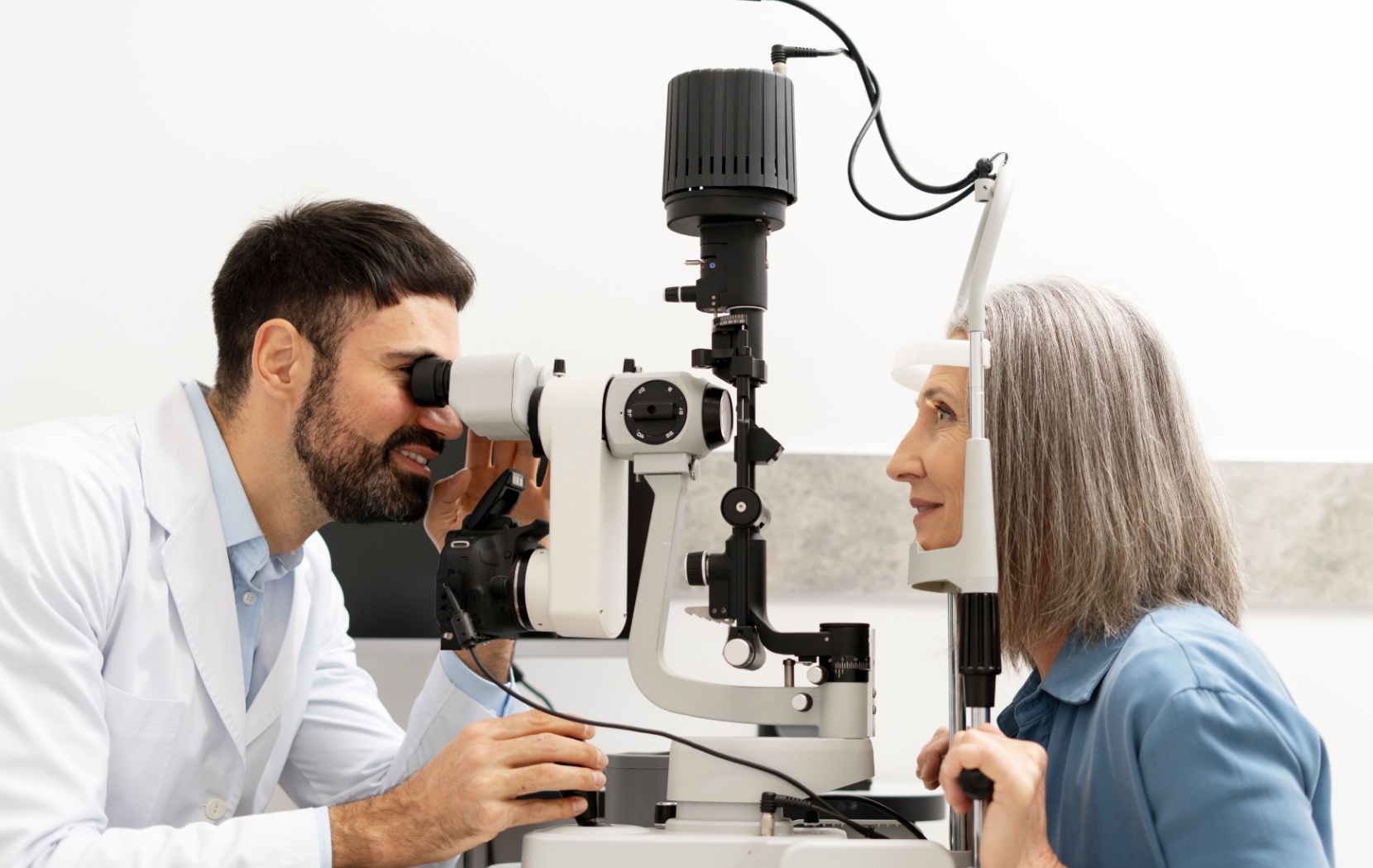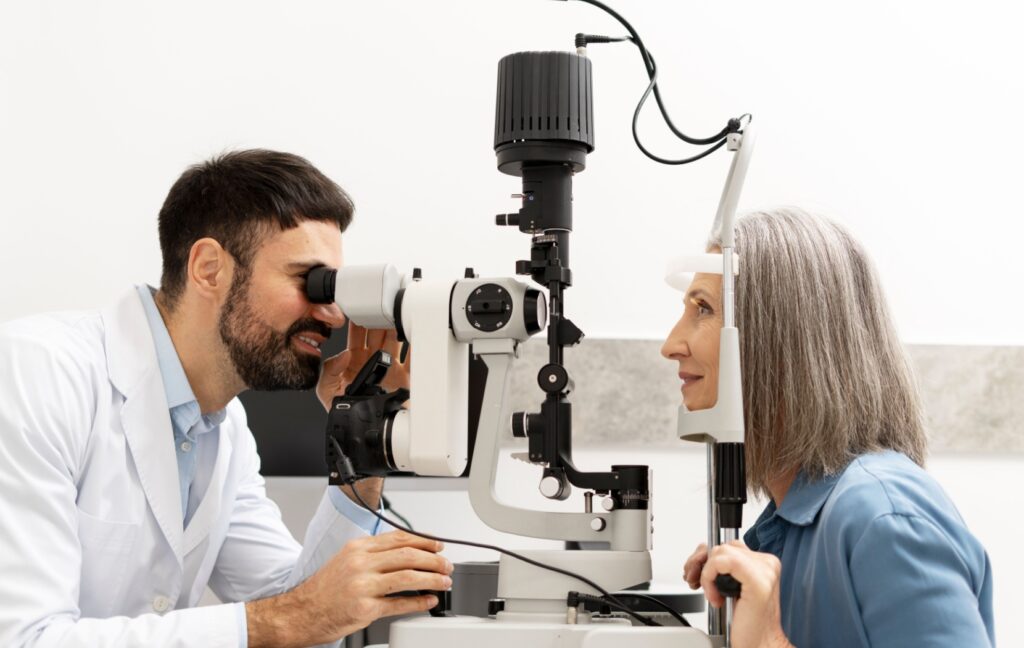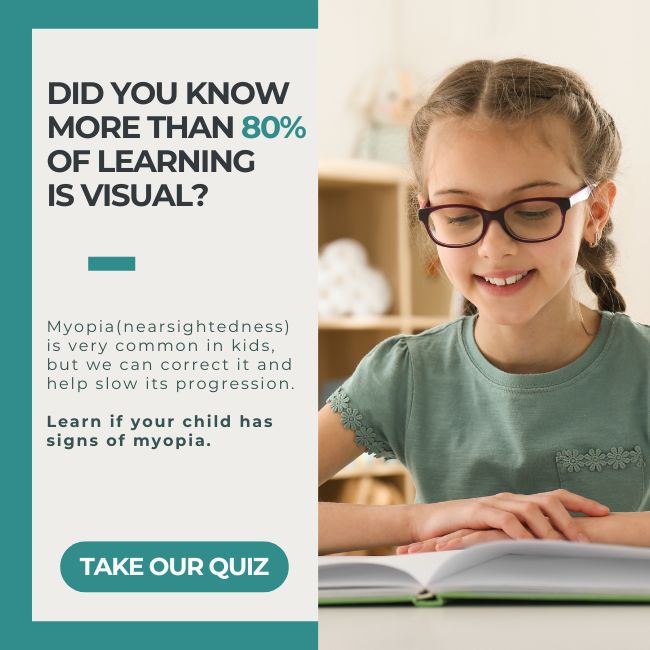Our eyes are incredible organs that allow us to experience the world in vivid detail. But like any part of the body, they change over time—and sometimes without obvious symptoms. Knowing how often to schedule an eye exam is essential to keeping your vision clear and maintaining your overall health.
The frequency depends on several factors, including your age, overall health, and existing eye conditions. We recommend annual eye exams for most children, adolescents, and adults. However, if you wear corrective lenses, have a family history of eye disease, or manage conditions like diabetes, more frequent visits may be necessary.
Whether you’re a new parent, a busy adult, or enjoying your retirement, regular eye exams are a simple but powerful way to protect one of your most precious senses.
Why Are Eye Exams So Important?
Eye exams are more than just a way to update your glasses prescription. They provide a comprehensive look at the health of your eyes and can reveal clues about your general well-being. The eyes are unique because they allow optometrists to see blood vessels, nerves, and tissues directly—giving early warning signs of conditions that affect your entire body.
For example, diseases like diabetes, hypertension (high blood pressure), high cholesterol, and even certain cancers can sometimes be detected through changes in the eye’s retina or blood vessels. Neurological disorders such as multiple sclerosis or brain tumors may also show early signs visible only during an eye exam.
Catching these conditions early often means better treatment outcomes, making routine eye exams a crucial part of your healthcare routine.
Eye Exam Frequency by Age Group
Health authorities in Canada, including the Canadian Association of Optometrists and provincial health programs, provide general guidelines on how frequently you should have an eye exam based on your age and risk factors.
Infants & Toddlers (Birth to 3 Years)
From the moment babies open their eyes, their vision begins developing rapidly. A comprehensive eye exam within the first 6 months helps detect congenital eye problems or developmental issues that could impact their visual growth.
After your child turns one, we recommend annual eye exams to assess eye alignment, focusing ability, and overall eye development. Early detection during this critical period can prevent lifelong vision challenges and support healthy visual development.
Preschoolers (Ages 3–5)
The Canadian Association of Optometrists strongly recommends at least 1 comprehensive eye exam between the ages of 3 and 5. This examination can identify refractive errors such as nearsightedness, farsightedness, or astigmatism before your child enters school.
Undetected vision problems can significantly impact learning and development. Children often don’t realize they’re not seeing clearly, making professional assessment essential during these formative years.
School-Age Children & Teens (Ages 5–19)
Annual eye exams become particularly important during the school years. Good vision directly supports academic success, from reading the blackboard to participating in sports and extracurricular activities.
During adolescence, vision changes can occur rapidly due to growth spurts and increased screen time. Regular monitoring ensures any prescription changes are caught quickly, preventing eye strain and supporting optimal visual development.

Adults (Ages 20–65)
For healthy adults with no symptoms or known eye conditions, the general guideline is to have a comprehensive eye exam every year. However, certain factors may mean you need exams more often:
- Wearing glasses or contact lenses
- Family history of eye diseases such as glaucoma or macular degeneration
- Chronic health conditions like diabetes or high blood pressure
- Occupations involving extensive computer use or eye strain
- Previous eye injuries or surgeries
Your eye care professional will recommend a personalized schedule based on your individual risk factors and lifestyle needs.
Seniors (Ages 65 & Older)
As we age, the risk of developing age-related eye conditions increases significantly. Annual comprehensive exams are crucial for seniors to detect and manage conditions like cataracts, glaucoma, and macular degeneration.
Early detection and treatment can often slow progression and preserve vision quality. More frequent monitoring may be necessary depending on existing conditions and overall health status.
What Happens During a Comprehensive Eye Exam
A thorough eye examination goes far beyond reading letters on a chart. Your comprehensive exam can include several essential tests:
- Visual acuity test: Measures how clearly you see at various distances using standardized eye charts.
- Refraction assessment: Determines your exact prescription for glasses or contact lenses using specialized equipment.
- Eye muscle evaluation: Checks how well your eyes work together and track moving objects.
- Pupil response test: Assesses how your pupils react to changes in light, indicating healthy nerve function.
- Color vision screening: Identifies any difficulties distinguishing between colors.
- Eye pressure measurement: Screens for glaucoma by measuring the pressure inside your eyes.
- Slit-lamp examination: Uses magnification to examine the structures of your eyes in detail, detecting abnormalities that might not be visible otherwise.
- Retinal Imaging: Capturing detailed pictures of your retina to monitor health over time.
These tests help provide a complete picture of your eye health and allow for early diagnosis of both eye and systemic conditions.
Protecting Your Vision for Life
Regular comprehensive eye exams are one of the most important steps you can take to preserve your vision and overall health. Many eye conditions develop gradually without obvious symptoms, making professional monitoring essential for early detection and treatment. At Insight Eyecare, our dedicated team is committed to providing thorough, compassionate eye care for patients of all ages. Contact us today to book your annual comprehensive examination and take a proactive step toward lifelong eye health.







